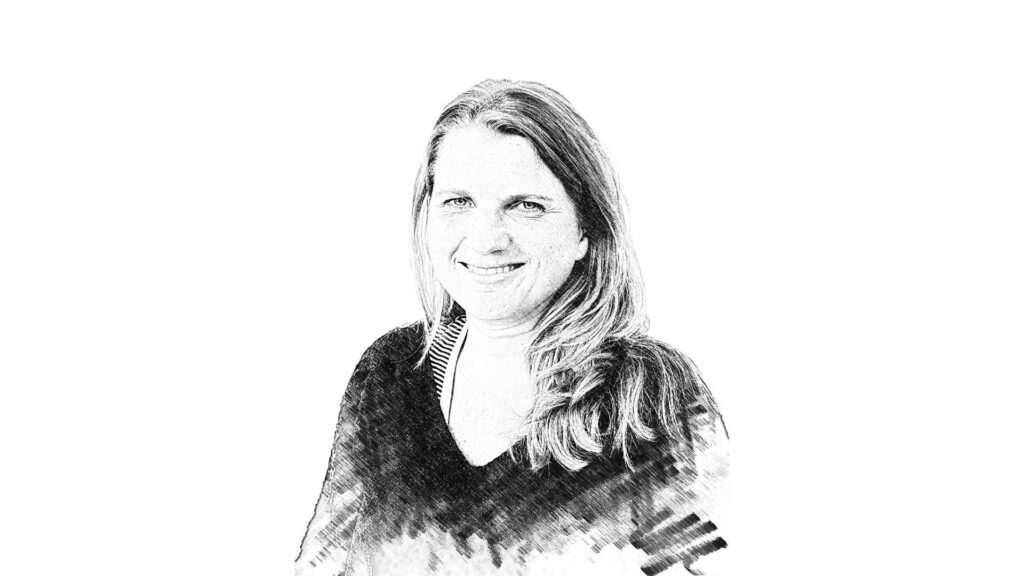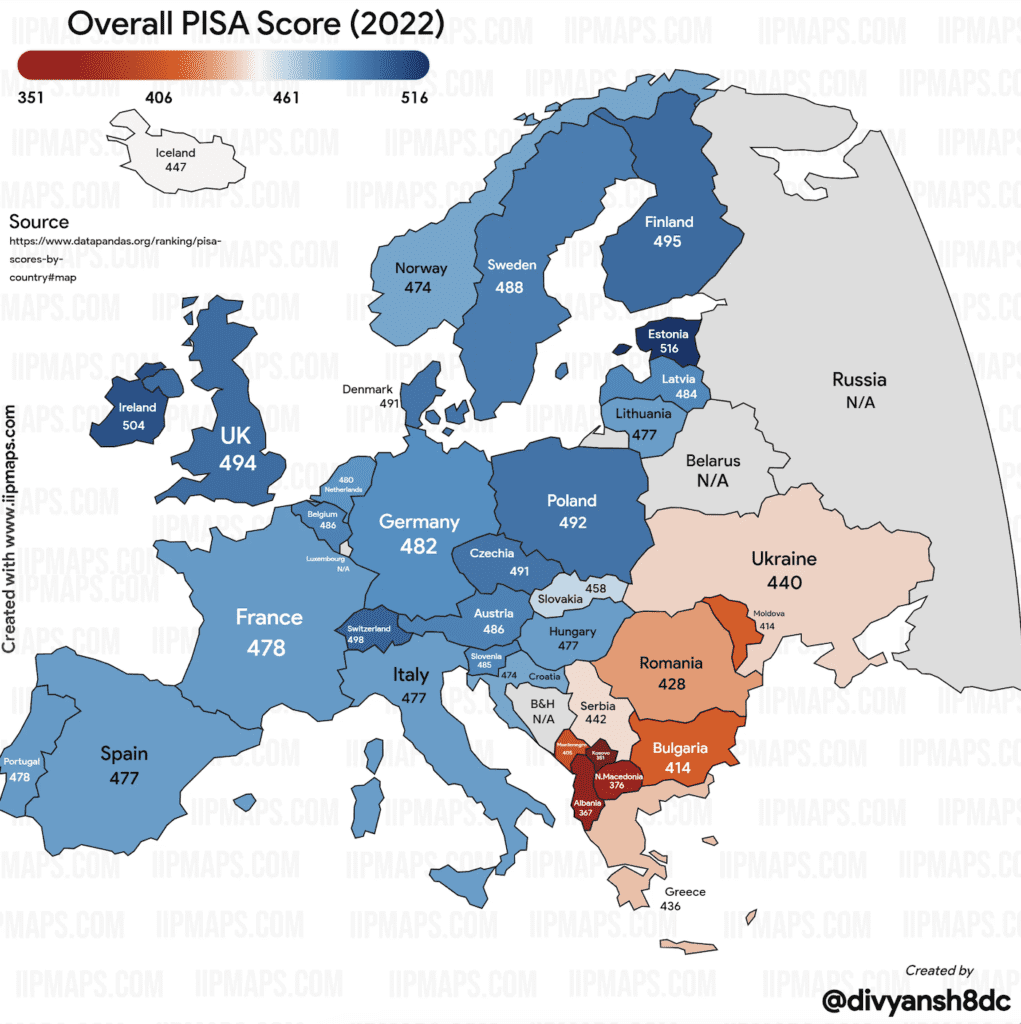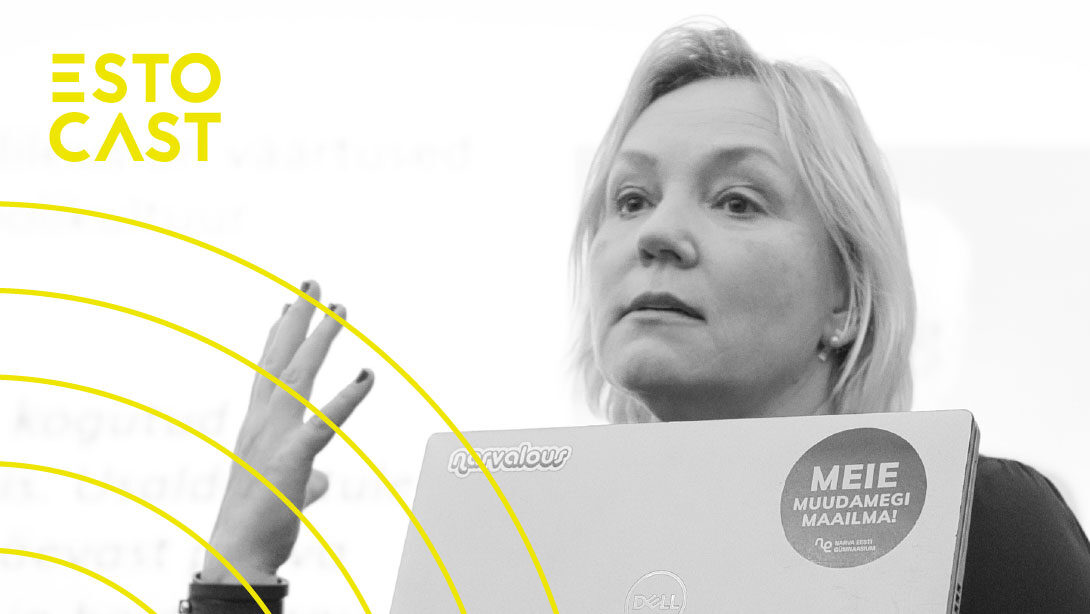
A week later, the PISA (Programme for International Student Assessment) 2022 results were revealed. Although there is critique among educators against large-scale international assessments and different understandings on how the results can and should be interpreted, they still give us useful data, both for making comparisons and for understanding general trends.
Estonian pupils at the top in core PISA competencies
PISA 2022 tested math, reading, and science knowledge/skills among 15-year-olds in 40 countries all over the world. Estonian students have achieved the best scores among Europeans in previous PISA studies and continue to do so. Among European countries, Estonia ranked 1st-2nd in math together with Switzerland, 1st in science, and 1st-2nd in reading together with Ireland. However, in all of these tests, East Asian education systems (Singapore, Taiwan, Macao, Hong Kong, Japan, and Korea) outperformed other countries.
While previously you were still able to get a good education regardless of how rich or poor your parents were, those differences have now increased.
PISA 2022 was exceptional, as in every country except Japan, the scores fell compared to previous years, with the COVID-19 pandemic and increased use of digital devices taking the blame. One worrying trend was increased inequality within educational systems, which can also be seen in Estonia. While previously you were still able to get a good education regardless of how rich or poor your parents were, those differences have now increased.
The key to Estonian success in PISA is attributed to its teachers, who are dedicated professionals. The Estonian education system seems very efficient as high PISA scores are achieved with a relatively modest remuneration. However, that is also one of the greatest pitfalls of the system. Over half of Estonian teachers are over 50 years old and there is a shortage of people studying to become teachers who would replace them as the low salary and demanding work is not attractive to young Estonians. At the time of writing this article, teachers in Estonia are planning to strike because the government has been unable to fulfil its promises of a raise in pay.

Civic skills and competencies could be improved
The results of the ICCS did not arouse as much attention as PISA, but are also interesting and important. This study tested civic knowledge, attitudes, and behaviours among 15-year-old pupils in 24 countries around the world. Again, the knowledge level of Estonian pupils was high when compared internationally, as Estonian pupils scored fourth place after Taiwan, Sweden, and Poland.
Only 6% of Estonian pupils said that they discuss political or social issues with peers and only 38% said that contemporary topics are discussed in school.
However, the study revealed that having knowledge does not translate into being an active citizen. Only 6% of Estonian pupils said that they discuss political or social issues with peers and only 38% said that contemporary topics are discussed in school. While youth in Estonian are more aware than before of global challenges like climate change, migration, and conflicts, compared to youth in other countries they are less likely to act proactively, to search for solutions to these challenges. According to this study, young Estonians are also not interested in politics or voting in the future.
Civics teachers complain about their subject being overburdened. The number of topics covered is constantly growing — from the basics of democratic systems to global issues like migration, climate justice, and fake news — but the time allocated has remained limited. In basic schools (grades one to nine) there are 105 lessons in total. At the gümnaasium (high school) level, there are two 35-hour courses that take place over three years. Time devoted to learning the core PISA subjects (math, reading, and science) is much greater.
What do the tests tell us?
The high scores in PISA are laudable and show that basic education is valued and efficient in the way it is taught. However, getting good grades at the age of 15 is not necessarily an indicator of future success in the ever-changing, contemporary world.
Both PISA and ICCS show that the Estonian education system is efficient in teaching cognitive skills, of knowledge and understanding. Estonian teachers should be given a lot of credit — and a decent salary — for achieving top-level results. However, there is also room for improvement. One important civic competence is the skill to debate controversial themes, understand different values and ideas, and learn to assess global and societal themes from various perspectives. That skill has become all the more important in our polarized, present-day societies and it's a skill that can be practiced in school with more active teaching methods and an emphasis on current events.



